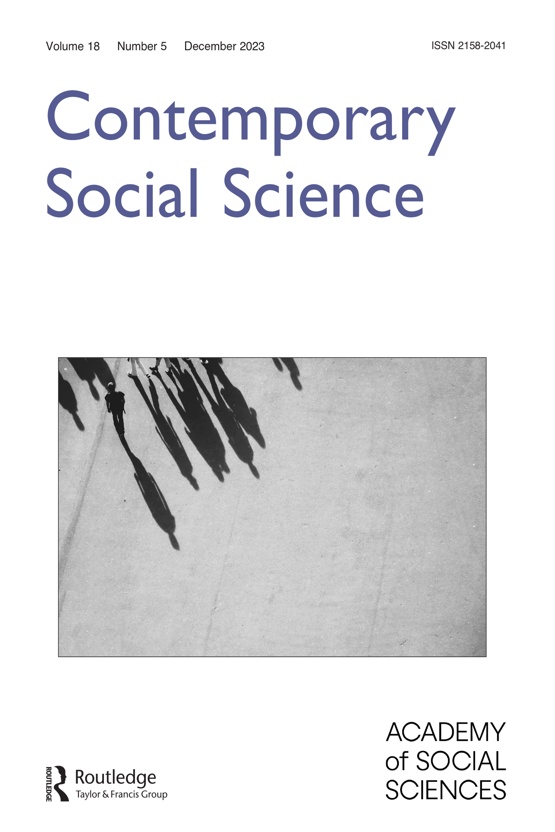Submit a Manuscript to the Journal
Contemporary Social Science
For a Special Issue on
The Civic University at the Crossroads
Manuscript deadline

Special Issue Editor(s)
Fumi Kitagawa ,
City-Redi, Birmingham Business School, University of Birmingham
f.kitagawa.1@bham.ac.uk
Christopher Millward,
School of Education, University of Birmingham
c.millward@bham.ac.uk
The Civic University at the Crossroads
Discussions and debate on the future of universities is marked by both opportunity and uncertainty across the world. Universities now rely on global activity to justify their standing and generate income. Nation-states determine regulation and funding (Marginson, 2022) affecting the balance of local access, national demand and attraction of highly educated global elites. At the same time, as anchor institutions, universities are expected to play a greater civic role in their local areas (Goddard, et al., 2016), enhancing educational opportunities and innovation, generating investment and jobs, and serving as “convenors of local dialogue” (Ivison, 2025) on the local and global conflicts and challenges within their communities.
There are different definitions and conceptualisations of “the civic university” (for examples, see: Brink, 2018; Goddard et al., 2016; UPP Foundation, 2019). The broad civic responsibilities are consistent with the founding purpose of many universities to provide higher levels of education for local people and training for local professions, whilst also advancing knowledge, culture and debate. The civic university agenda is also shaped and re-shaped by shifting local contexts as well as the changing national and international political environment. In England, for example, policy is shifting from the promotion of competition to the encouragement of collaboration between universities, businesses, public services and local government. This is intended to position universities within place-based approaches to social cohesion and connectedness, as well as economic growth (Dobson and Ferrari, 2023). It must, though, be delivered in a competitive funding environment, within which universities are reliant on student fees for most of their income.
These tensions have inspired reflection on the character of the civic university and measures to encourage it during the last decade. In “The Soul of a University”, Chris Brink argues that universities should be able to demonstrate not only “what are we good at?” but also “what are we good for?” (Brink, 2018). Whereas the first question serves reputational standing and competition, the second must be addressed by a university that claims to be civic. Answering it demands more than rhetoric or additional tasks beyond the core missions of teaching and research (Denison and Newby, 2019). It requires embedding within the culture and practices of a university, and new models of collaboration that can navigate competing institutions and interests locally, nationally and internationally. Despite efforts to advance this, such as the Civic University Commission in the UK (UPP Foundation 2019), there is little consensus on what is required in terms of capacity, capabilities and resources at an organisational level on the one hand, and policy and funding at the central and sub-national government levels, on the other.
This call for papers addresses the changing nature of the civic university - what is the civic university, how has it been understood and how should the concept change to reflect current and future conditions for universities worldwide? While diverse historical contexts behind civic roles shape different expectations of universities across many countries, sharing challenges and good practices across different national systems will help universities learn innovative practices from peers, and provide policy makers and institutional leaders with evidence and guidance to embed, cement and sustain civic roles of universities.
We invite the submission of original articles, theoretical/conceptual, empirical and pragmatic using qualitative, quantitative, or mixed methodologies from across social sciences and related disciplines. We encourage single disciplinary, multi-disciplinary and cross-disciplinary perspectives, from any sub-national, national, and international setting.
The following questions (non- exhaustive) may be addressed:
- What are the characteristics of the civic university, how has this changed and how will it develop into the future?
- How do we measure the social and place-based value and impact of the civic university, beyond economic impact studies?;
- In what ways would different national and sub-national funding and governance models of higher education help sustain civic roles of universities?;
- What are the incentives and accountability mechanisms needed to advance the civic university agenda, and how should be situated alongside other influences such as rankings, research assessment and student fees?;
- In what ways should the civic university help place-based partnership and local growth? Are there different civic university models in relation to the characteristics of the places they are located? What are the new models of collaboration between universities and local partners to facilitate inclusive growth? How should the civic university respond to local skills and innovation imperatives, and what are the partnership models for this?;
- In what ways do civic universities address global challenges and respond to societal and environmental transformational agendas?;
- What are the responsibilities of university governance and leadership related to the civic university?;
- What are the roles of students and alumni in the civic university?;
- How do different missions - research, teaching and ‘third’ mission – interact within the civic university model?; and
- How should different funding and regulatory bodies responsible for tertiary education work together to achieve civic agendas?
Submission Instructions
For full instructions on submitting to the journal please see the Instructions for Authors page.
Authors should indicate that they wish the manuscript to be reviewed for inclusion in the special collection.
The Editors of this issue would be happy to review plans for papers in advance of their receipt. All papers will be peer reviewed.
The closing date for submitting papers is end of December 2025, with the aim of publication of papers in 2026.
Manuscripts should follow the journal instructions for online submission of papers. For any queries contact us at:
Contacts
Fumi Kitagawa, University of Birmingham f.kitagawa.1@bham.ac.uk
Christopher Millward, University of Birmingham c.millward@bham.ac.uk

